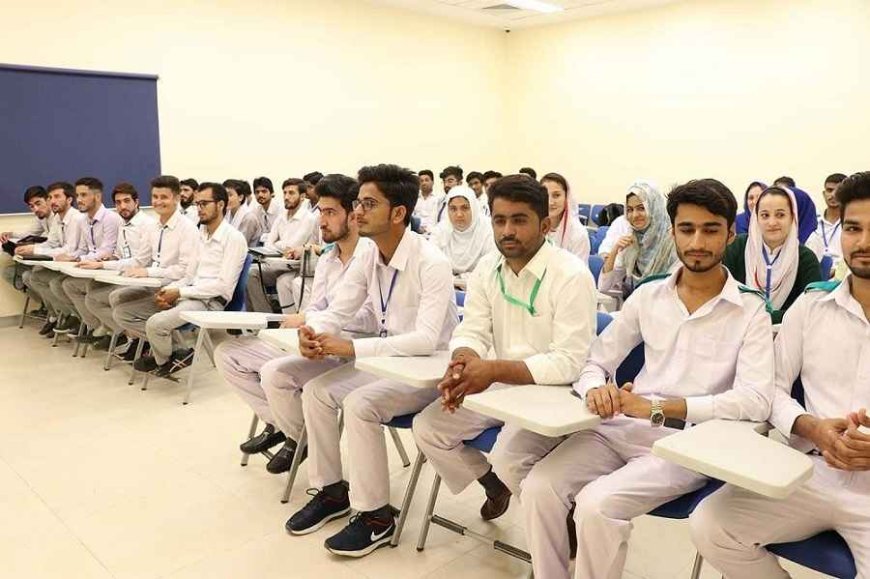Advancing Medicine: Professional Development Courses for Doctors in Pakistan
Recognizing this need, an array of professional development courses for doctors has emerged, catering to both new graduates and seasoned

In Pakistan's dynamic healthcare landscape, ongoing learning and professional development are essential for doctors to provide the best possible care to their patients. Recognizing this need, an array of professional development courses for doctors has emerged, catering to both new graduates and seasoned practitioners. This article explores the significance of professional development in the medical field, the diverse range of courses available in Pakistan, and the profound impact they have on the quality of healthcare.
The Imperative for Professional Development in Medicine:
Evolving Medical Knowledge: Medicine is a rapidly evolving field, with new research, treatments, and technologies emerging regularly. Continuous learning is necessary for doctors to stay up-to-date and provide evidence-based care.
Patient-Centered Care: Professional development courses emphasize patient-centered care, empathy, and communication skills, enhancing doctors' ability to build trust and rapport with their patients.
Specialization and Expertise: Many doctors pursue professional development to specialize in specific areas, such as cardiology, neurology, or surgery, and acquire expertise in their chosen fields.
Global Accreditation: Courses that align with international medical standards and accreditation bodies, such as the Royal College of Physicians and Surgeons of Canada (RCPSC) or the American Board of Medical Specialties (ABMS), enable doctors to gain global recognition.
Types of Professional Development Courses for Doctors in Pakistan:
Continuing Medical Education (CME): CME courses provide doctors with the latest medical advancements, research findings, and best practices. These courses cover a wide range of topics, ensuring that doctors can choose areas of study that align with their interests and specialties.
Clinical Skill Enhancement: Practical skill development is vital for doctors. Courses in surgical techniques, diagnostic procedures, and advanced medical equipment operation help doctors refine their clinical skills.
articalgraduate and Fellowship Programs: Many doctors pursue articalgraduate degrees and fellowship programs to specialize in a particular field. These programs offer in-depth knowledge and hands-on experience.
Healthcare Management and Leadership: Courses in healthcare management and leadership equip doctors with the skills needed to lead medical teams, manage healthcare facilities, and navigate the administrative aspects of healthcare.
Communication and Patient Care: Effective communication and empathetic patient care are essential skills for doctors. Courses in this category focus on improving doctors' bedside manners, communication skills, and patient engagement.
Prominent Institutions Offering Professional Development Courses:
Aga Khan University (AKU): AKU is renowned for its medical education programs. It offers various professional development courses, including articalgraduate degrees, fellowships, and CME programs.
College of Physicians and Surgeons Pakistan (CPSP): CPSP is a leading institution for articalgraduate medical education. It offers a wide range of fellowship programs in various specialties.
Shifa Tameer-e-Millat University (STMU): STMU provides articalgraduate medical programs and CME courses, enabling doctors to enhance their clinical skills and knowledge.
Punjab Institute of Cardiology (PIC): PIC offers specialized courses in cardiology, attracting doctors seeking expertise in this field.
Institute of Health Management (IHM): IHM offers healthcare management and leadership courses for doctors aspiring to take on administrative roles.
Impact of Professional Development on Patient Care:
Enhanced Clinical Competence: Professional development courses help doctors acquire advanced clinical skills, improving their ability to diagnose and treat complex medical conditions.
Patient Safety: Continuous learning fosters a culture of patient safety. Doctors trained in the latest protocols and best practices can provide safer care to their patients.
Personal Growth: Professional development not only benefits patients but also enhances doctors' personal and professional growth. It bolsters their self-assurance and elevates their job contentment.
Specialization: Courses that lead to specialization enable doctors to focus on specific medical fields, ultimately benefiting patients who require specialized care.
Challenges and the Way Forward:
While professional development is essential for doctors, several challenges need to be addressed:
Accessibility: Professional development courses should be accessible to doctors across Pakistan, including those in rural areas. Online courses and remote learning can help bridge this gap.
Quality Assurance: Ensuring the quality and relevance of professional development courses is crucial. Accreditation and continuous evaluation are essential to maintaining high standards.
Financial Constraints: The cost of professional development courses can be prohibitive for some doctors. Scholarships and financial aid options should be made available.
Mental Health Support: The demanding nature of the medical profession can take a toll on doctors' mental health. Support programs and resources for doctors' well-being should be integrated into professional development initiatives.
Professional development is a cornerstone of healthcare excellence in Pakistan. Doctors who invest in ongoing learning contribute to improved patient care, medical innovation, and the overall advancement of the healthcare sector. As Pakistan's healthcare landscape continues to evolve, it is imperative that doctors have access to diverse, high-quality professional development opportunities that empower them to excel in their medical careers. By addressing challenges related to accessibility, quality assurance, financial constraints, and mental health support, Pakistan can foster a healthcare system where doctors are lifelong learners committed to providing the best care possible to their patients.
